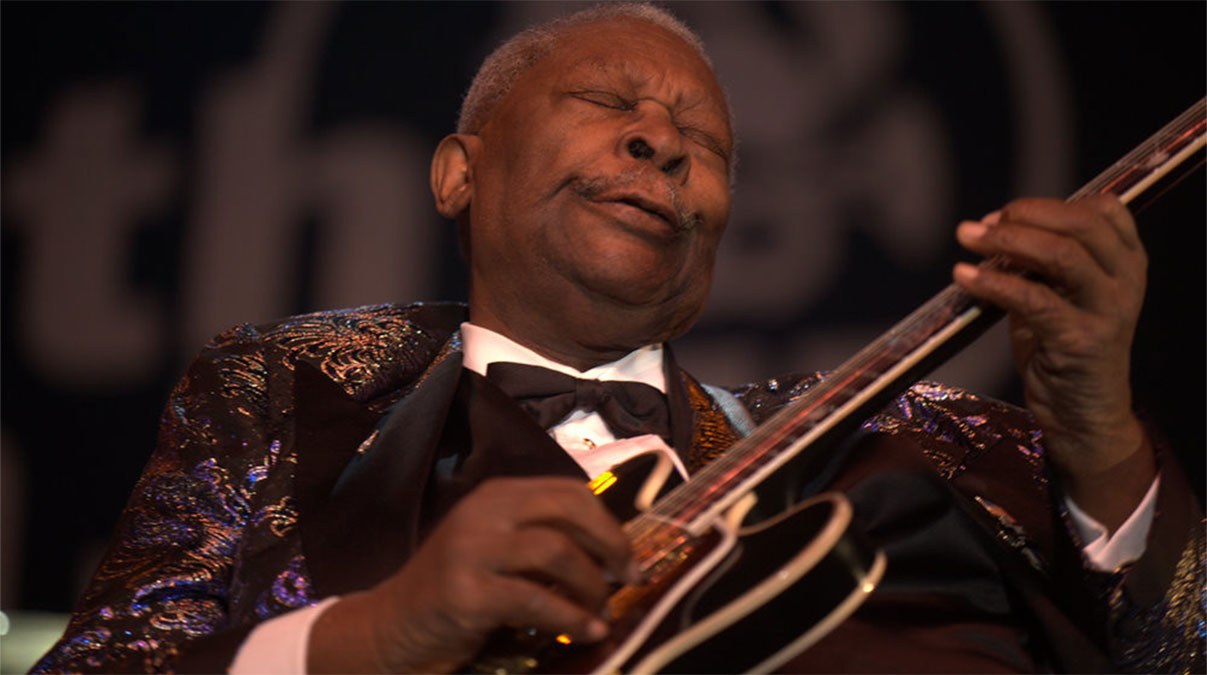
Sept. 16, 1925

“The King of the Blues” was born Riley B. King on a plantation near Itta Bena, Mississippi, the son of sharecroppers.
While singing in the church choir, he watched the pastor playing a Sears Roebuck guitar and told the preacher he wanted to learn how to play. By age 12, he had his own guitar and began listening to the blues on the radio. After playing in churches, he went to Memphis to pursue a music career in 1948, playing on the radio and working as a deejay who was known as “Blues Boy” and eventually “B.B.”
Within a year, B.B. King was recording songs, many of them produced by Sam Phillips, who later founded Sun Records. In 1952, “3 O’Clock Blues” became a hit, and dozens followed.
While others sought to bring change through the courts, King did it through music. The songs that he and other blues artists created drew many listeners across racial lines. One of the biggest fans walked into the studio one day and called him “sir.” His name? Elvis Presley, whose first big hit was the blues song, “That’s All Right, Mama.”
King explained that music was like water — something “for every living person and every living thing.” His smash hit, “The Thrill Is Gone,” made him an international star and led to collaborations with some of the world’s greatest artists.
He survived a fire that almost burned up his beloved guitar, “Lucille,” and won 18 Grammys as well as a Grammy Lifetime Achievement Award. In 1987, he was inducted into the Rock & Roll Hall of Fame. Both Time and Rolling Stone magazines ranked him as one of the greatest guitarists of all time.
In 2006, he received the Presidential Medal of Freedom, the greatest civilian honor. Two years later, his hometown of Indianola honored him by opening the B.B. King Museum and Delta Interpretive Center. After he died in 2015, thousands flocked to the Mississippi Delta for the wake and funeral.
“Hands that once picked cotton,” the preacher told the crowd, “would someday pick guitar strings on a national and international stage.” He performed till the end, telling Rolling Stone in 2013 that he had only missed 18 days of performing in 65 years. He died two years later at 89 after battling diabetes for decades.

